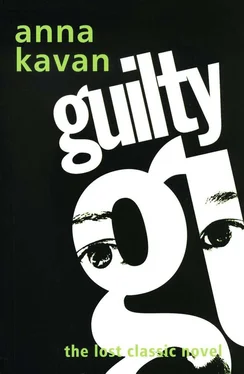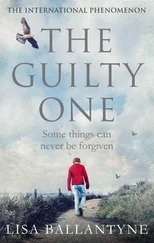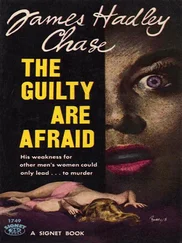I’d so seldom been in this room that I glanced around it now with a slightly nervous curiosity, half relieved, half disappointed to note its already partly dismantled air — books gone from the shelves, the pigeonholes of the desk empty, torn paper piled in the grate — more pathetic than gruesome and quite devoid of the sinister secrets I’d been expecting. My father, too, was almost disappointingly unalarming, a quiet, grave, unassuming man, looking up at me in surprise from the open case in which he was packing the last of his papers.
If, unbeknown to me, any ogrish dustbin-stamping image still haunted the dark recesses of my memory, it should have been exorcized now, as, in one of those odd isolated flashes of detached observation that children sometimes have, I saw how much older and wearier he was looking than when he’d come home to us from the war, far more worn and depleted by his fearful interior war of principles versus affection, of which I, of course, could know nothing. His ideals now triumphant, he was abandoning all he loved; the terrible battle was won. But he didn’t look like a man who had won any sort of a battle; he only looked tired and lonely — very tired, and very lonely.
These were the impressions I recorded, camera-like, on the spot without understanding, and stored away to be reexamined at a much later date, when I was of an age to grasp their implications. At the time, I was only a resentful child, understanding nothing, absorbed in my own affairs, seeing him as the thief who had stolen first my mother and the happiness of my home and now my big moment.
When he came to me and took my hand, I, determined to make no concessions, stiffened against him without a word. He stooped to peer into my face, trying to see what was wrong, wondering, no doubt, why I stood there so woodenly, stubbornly silent. Then, puzzled, but asking no questions, he led me to the desk, where he sat down, producing some brightly coloured travel folders and began to tell me about his voyage and the countries he was going to visit, in such a gentle, friendly, quiet way that I melted slightly in spite of myself and asked why he was going away when he hadn’t been back with us long.
He told me he was going to look for a country where there was peace, where people lived together in friend liness and goodwill, and the air wasn’t poisoned, as it was here, by hatred and the bitterness of old wars or the fear of new ones. Somewhere on earth there must be a place where people were still sane and healthy and loved life, not death, and he was going to find it. Then he’d come back for us, and we’d all live there happily ever after.
He didn’t, of course, use those exact words; I can’t reproduce his language. I only know it all had the sound of a fairy-tale to me, so that I never thought of it as a reality, as a thing that really might happen. It didn’t sound like a real project, and I remember thinking this promised land of his was just a device he employed (as I used my imaginary worlds) to escape the pains and disappointments of real life. It gave me a fellow feeling with him to know we shared these insubstantial resources, but it also seemed pitiable, almost shameful, that a grownup person should be forced to descend to such strategems. When he said something unintelligible to me about peace being his home, I got impatient, reminding him that our country was at peace now, so there was no need for him to search for it in far-off foreign places. But this he wouldn’t admit, shaking his head, saying, ‘No, not real peace; and not for long, even such as it is. There won’t be any more real peace — not here — not in our time.’
My interruption may have recalled him to the need for making himself comprehensible to a small boy, for he talked no more about peace and went on to tell me I’d have to be the man of the house while he was away and take care of my mother but that if anything went wrong I could always call upon Mr Spector, who had promised to run down occasionally to keep an eye on us both.
Mr Spector had almost disappeared from my memory, eclipsed by newer faces and by all that had been happening to me since I saw him, so I really don’t know why I should have expressed such pleasure at the prospect of having him as a sort of father-substitute, unless, as I’ve sometimes thought, children have an instinctive knack of tormenting their elders without knowing how or why, and I was trying to let my poor father see how unfavourably he compared with his friend. I wasn’t entirely innocent or ignorant of the hurting effect of my attitude, for I remember feeling slightly confused and turning aside to hide my embarrassment by inspecting the travel pictures, in one of which a boy of about my size was shown surf-riding, which interested me extremely, because I’d seen surf-riding, though of a very inferior kind, on my holiday. This was the real thing, I thought, gazing in awe at the huge breakers, imagining that I was that small figure, riding so splendidly on the backs of the surging swells, feeling the double thrill of speed and of dominion over their power. When my father asked if I’d like to go there with him and learn how to ride the waves, the word ‘Yes’ was actually on my lips when I suddenly checked it. Suddenly I was ashamed of being won over so easily, as if I’d foolishly let him trick me out of my resentment, like a baby bribed with a sweet, and I said ‘No’ almost roughly, pushing the picture away with an aggressive movement so that it fell on the floor.
He looked at me in astonishment, but he didn’t reproach me or ask why I’d behaved so rudely. I heard him give a deep sigh; that was all. Then he stooped and picked up the folder I’d dropped and sat twisting it absently between his knees, his head bent, in a dejected resigned posture, as if my hostility were only what he’d expected and deserved. He said nothing more but, by making no further attempt to establish friendly relations, seemed to accept our estrangement as permanent. I felt he regarded the position as hopeless, and it rather alarmed me that this should be his final evaluation. Things seemed to have gone too far, further than I’d intended. I think I must now have seen how my behaviour had hurt him, accentuating his loneliness (of which I recall an impression almost concrete, as if he sat there under a glass dome), for I suddenly wanted to explain that I hadn’t meant what I’d said but would really like very much to go with him and learn how to ride the waves. But, with the transparent wall between us, I couldn’t reach him. Besides, I was becoming slightly unnerved by the long silence, and I couldn’t take responsibility for breaking it.
I’ve often wished since that I’d been even a few years older at this time, so that we could have understood one another, at least partly, and I could have given him some of the companionship he so badly needed. He must have been desperately lonely and miserable, alone with his heartbreaking interior struggle, loving my mother so much and seeing her so unhappy. I like to think that, on this last evening, she relented a little and that they came nearer together again — though then, in my child’s egotism, I resented even such tentative signs as they gave of a revival in understanding.
All this time, my father had kept the same crushed and despondent pose; now he suddenly sat up straight, his whole aspect changed, and gazed past me with an eager expectant look, as if a welcome visitor were appearing. So striking was the change in him that I looked around to see who was coming. There was nobody at the door, and though it opened a moment later only my mother came in to call us to supper.
He was already beside her before she had finished speaking, having crossed the little room with two or three rapid strides; and I heard him say, ‘That was generous of you’, while he stared into her face as if memorizing each feature.
Читать дальше












